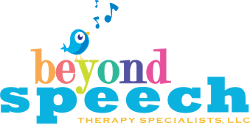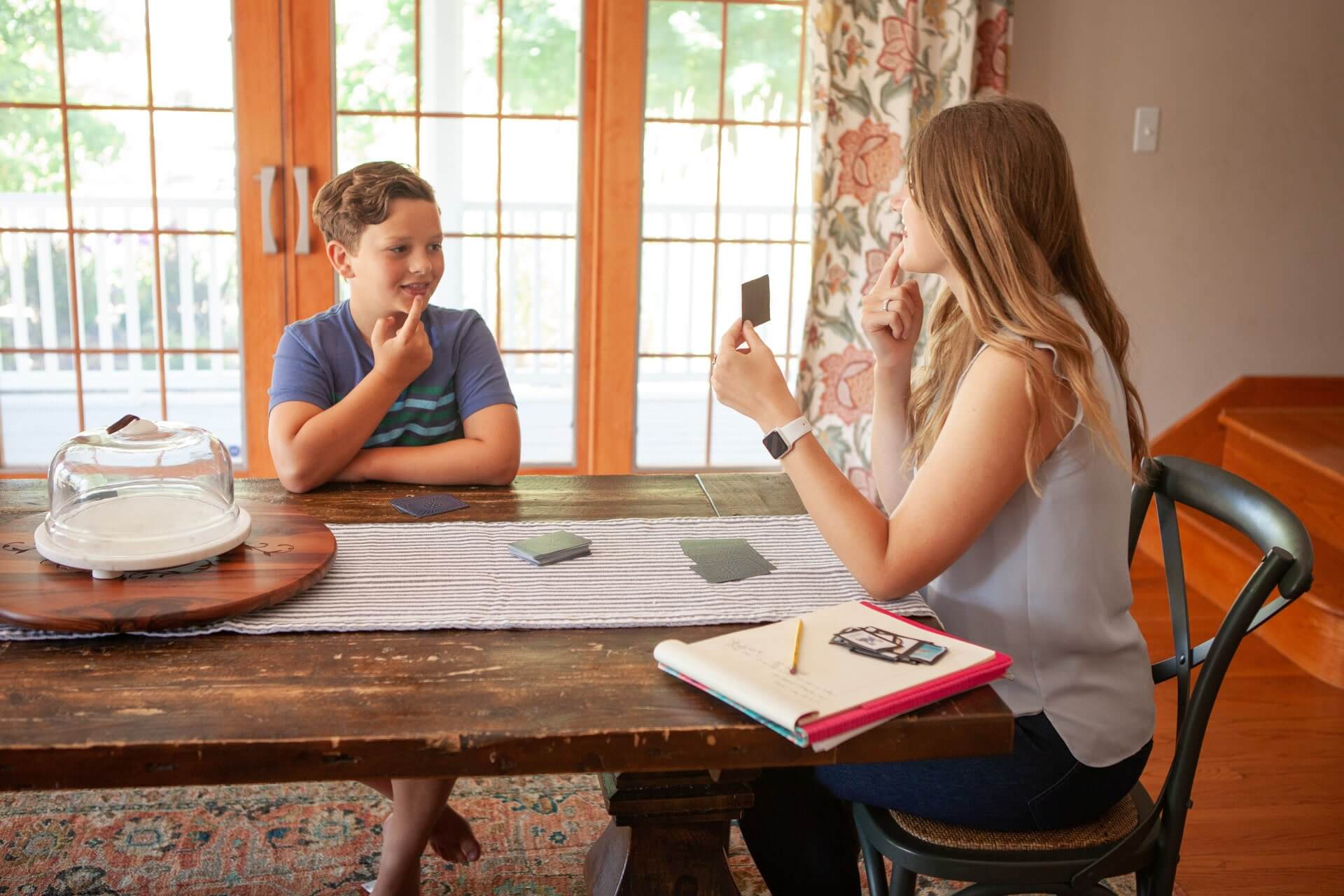When the speech-language therapy session ends, how can we, as parents, continue to support all the great work our kids are doing? By incorporating language practice into our everyday activities!
At Beyond Speech Therapy Specialists, we know the importance of carryover—the ability to use newly acquired skills in real-life situations—and we want to support parents with practical tips and ideas for integrating speech practice into their daily routines.
We’ve got 7 simple strategies for you to continue your child’s speech therapy work between sessions and support the big work those little minds are doing!

What Is Carryover?
Carryover, also known as generalization, refers to the ability for our kids to apply newly learned skills or behaviors outside of therapy and in their everyday lives.
In the context of speech therapy, carryover occurs when a child can use the sounds, language concepts or communication strategies they’ve learned during therapy sessions in their everyday interactions with friends and family members.
Achieving carryover is a big goal of therapy!
Carryover shows us that the child has mastered the targeted skills – woohoo! By practicing speech in everyday life, parents can help facilitate carryover and reinforce their child’s ongoing progress.
Tips for Practicing Speech in Everyday Life
- Narrate Daily Activities
Describe what you and your child are doing throughout the day, using clear, simple language.
- While cooking dinner – “Now I’m chopping carrots into small pieces,” or “Let’s pour the milk into the cereal bowl.”
- While getting dressed – “Let’s put our arms up and put a shirt on,” “What comes next, socks or shoes?”
- Sing Songs and Nursery Rhymes
Singing is a fun, engaging and natural way to practice sounds and improve language skills. Choose songs your child likes and that have repetitive lyrics or rhyming patterns. Encourage your child to sing along! - Play Games That Support Communication
Board games, card games and interactive toys provide lots of opportunities for turn-taking, following directions and expressing thoughts and ideas with language.
Games like “I Spy,” “Simon Says,” and “20 Questions” are excellent choices for building speech and language development. - Lots of Pretend Play
Throughout the day, encourage your child to create imaginative play scenarios – playing house, school, or restaurant. This kind of pretend play fosters creativity, problem-solving skills, and social communication while providing opportunities to practice sounds and vocabulary words. - Read Together Every Day
Reading aloud with your child is one of the best ways to promote language development and literacy skills.
Choose fun, age-appropriate books with colorful pictures, engaging stories and favorite characters. As you read, encourage your child to participate by asking questions, making predictions about what is going to happen and retelling the story – or part of the story – as you read. - Practice Speech Sounds in Context
Help your child practice speech sounds in the context of everyday conversations. Model correct articulation, provide feedback and celebreate their efforts when they produce sounds accurately. - Create Opportunities for Social Practice
Language flourishes when it can be used with others. Arrange playdates, outings and social activities where your child can interact with their peers and practice their communication skills.
Supporting your child in their speech development is easy to do once you know how!
By using some of these simple techniques into your every day routine, you can help support carryover and your child’s speech and language development beyond their therapy sessions.
Overall, remember to always be patient, encouraging and consistent when working toward your child’s goals. And remember to celebrate progress every step of the way!
If you’re looking for speech-language support or therapy for your child, reach out to us at Beyond Speech Therapy Specialsts and we can connect you with one of our fantastic speech-language pathologists! We are here to help!

